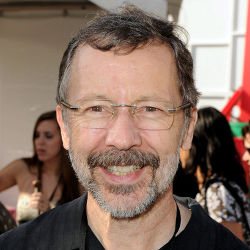In "Regulating the Information Gatekeepers" (Nov. 2010), Patrick Vogl and Michael Barrett said a counterargument against the regulation of search-engine bias is that "Search results are free speech and therefore cannot be regulated." I'm astounded that anyone could seriously make such a counterargument.
CACM Staff
Shine the Light of Computational Complexity
Regarding Moshe Y. Vardi's view of computational complexity in "On P, NP, and Computational Complexity" (Nov. 2010), I'd like to add that the goal of computational complexity is to explore the potential and limitation of efficient computation.
To ensure the timely publication of articles, Communications created the Virtual Extension (VE) to expand the page limitations of the print edition by bringing readers the same high-quality articles in an online-only format. VE articles undergo the same rigorous review process as those in the print edition and are accepted for publication on merit. The following synopses are from articles now available in their entirety to ACM members via the Digital Library.
To Change the World, Take a Chance
Some of what Constantine Dovrolis said in the Point/Counterpoint "Future Internet Architecture: Clean-Slate Versus Evolutionary Research" (Sept. 2010) made sense. But I found his "pragmatic vision" argument neither pragmatic nor visionary.
A Conversation with Ed Catmull
Pixar's president Ed Catmull sits down with Stanford professor (and former Pixar-ian) Pat Hanrahan to reflect on the blending of art and technology.
As an editor of The Fourth Paradigm and someone who subscribes to Jim Gray's vision that there are now four fundamental scientific methodologies, I feel I must respond to Moshe Y. Vardi's Editor's Letter "Science Has Only Two Legs" (Sept. 2010).
The following synopses are from Virtual Extension articles that are now available in their entirety to ACM members via the Digital Library.
Though I agree with Mordechai Ben-Ari's Viewpoint "Objects Never? Well, Hardly Ever!" (Sept. 2010) saying that students should be introduced to procedural programming before object-oriented programming, dismissing OOP could mean throwing out the baby with the bathwater.
Communications' Virtual Extension expands the page limitations of the print edition by bringing readers high-quality articles in an online-only format.
Shape the Future of Computing
ACM encourages its members to take a direct hand in shaping the future of the association. There are more ways than ever to get involved.
Get Involved

